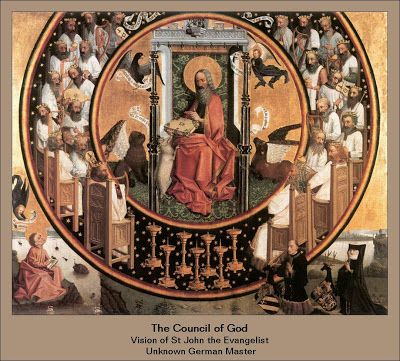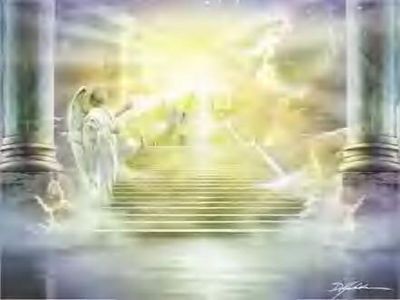
Search (www.salemthoughts.com)
|
|
Scripture Thoughts
 The Latter-day Saints use Amos 3:7 to
prove that God will always reveal his word to us through the
prophets. But is it possible that we have been misunderstanding that
verse?
The Latter-day Saints use Amos 3:7 to
prove that God will always reveal his word to us through the
prophets. But is it possible that we have been misunderstanding that
verse? Joseph Smith Translation
It is interesting the Joseph Smith made a change to Amos 3:7. He replaced the "his secret" with "the secret" which makes this a one time event for a true prophet.
Amos
3:7
Surely the Lord God will do nothing,
but he revealeth his secret unto his servants the prophets.
Many times this verse is quoted as, "Surely the Lord God will do nothing, but he revealeth his secrets unto his servants the prophets." That goes along with the assumed meaning of the verse that God is revealing many things (secrets) to the prophets. But the word is not secrets, it is the singular - secret. The word "secret" in this verse is the Hebrew word, sôd.
Strong's Exhausive Concordance gives us this definition for H5475 (sôd):
assembly, counsel, inward, secret
counsel
From yacad; a session, i.e. Company of persons (in close deliberation); by implication, intimacy, consultation, a secret -- assembly, consel, inward, secret (counsel).
Amos 3:7 is talking about a secret council or in this case a heavenly council. We can see other places where the scriptures refer to this heavenly council.Jeremiah 23:16-18
16 Thus saith the Lord of hosts,
Hearken not unto the words of the prophets that prophesy unto you:
they make you vain: they speak a vision of their own heart, and
not out of the mouth of the Lord.
17 They say still unto them that despise me, The Lord hath said, Ye shall have peace; and they say unto every one that walketh after the imagination of his own heart, No evil shall come upon you.
18 For who hath stood in the counsel [sôd] of the Lord, and hath perceived and heard his word? who hath marked his word, and heard it?
. . .
22 But if they had stood in my counsel [sôd], and had caused my people to hear my words, then they should have turned them from their evil way, and from the evil of their doings.
17 They say still unto them that despise me, The Lord hath said, Ye shall have peace; and they say unto every one that walketh after the imagination of his own heart, No evil shall come upon you.
18 For who hath stood in the counsel [sôd] of the Lord, and hath perceived and heard his word? who hath marked his word, and heard it?
. . .
22 But if they had stood in my counsel [sôd], and had caused my people to hear my words, then they should have turned them from their evil way, and from the evil of their doings.
Here the Lord is specifically telling us that we can recognize a true prophet because he has stood in the Heavenly Council the sôd.
The Prophet Isaiah gives a description of being in this Heavenly Council, although he doesn't specifically use the word sôd.
Isaiah 6:1-5

1 In the year that king Uzziah died
I saw also the Lord sitting upon a throne, high and lifted up, and
his train filled the temple.
2 Above it stood the seraphims: each one had six wings; with twain he covered his face, and with twain he covered his feet, and with twain he did fly.
3 And one cried unto another, and said, Holy, holy, holy, is the Lord of hosts: the whole earth is full of his glory.
4 And the posts of the door moved at the voice of him that cried, and the house was filled with smoke.
5 ¶Then said I, Woe is me! for I am undone; because I am a man of unclean lips, and I dwell in the midst of a people of unclean lips: for mine eyes have seen the King, the Lord of hosts.
2 Above it stood the seraphims: each one had six wings; with twain he covered his face, and with twain he covered his feet, and with twain he did fly.
3 And one cried unto another, and said, Holy, holy, holy, is the Lord of hosts: the whole earth is full of his glory.
4 And the posts of the door moved at the voice of him that cried, and the house was filled with smoke.
5 ¶Then said I, Woe is me! for I am undone; because I am a man of unclean lips, and I dwell in the midst of a people of unclean lips: for mine eyes have seen the King, the Lord of hosts.
This Council is not just for the prophets, but it is shown by the Lord to "them that fear him." He will invite such individuals into this Council so that he may reveal to them his covenant.
Psalms 25:14
The secret [sôd] of the
Lord is with them that fear him; and he will shew them his
covenant.
Of course the Hebrew word sôd is not part of our latter-day scriptures, but we can observe the same experience of those that are introduced into this Heavenly Council as Nephi describes the experience of his father Lehi.
1 Nephi 1:8, 14
8 And being thus overcome with the
Spirit, he was carried away in a vision, even that he saw the
heavens open, and he thought he saw God sitting upon his throne,
surrounded with numberless concourses of angels in the attitude of
singing and praising their God.
. . .
14 And it came to pass that when my father had read and seen many great and marvelous things, he did exclaim many things unto the Lord; such as: Great and marvelous are thy works, O Lord God Almighty! Thy throne is high in the heavens, and thy power, and goodness, and mercy are over all the inhabitants of the earth; and, because thou art merciful, thou wilt not suffer those who come unto thee that they shall perish!
. . .
14 And it came to pass that when my father had read and seen many great and marvelous things, he did exclaim many things unto the Lord; such as: Great and marvelous are thy works, O Lord God Almighty! Thy throne is high in the heavens, and thy power, and goodness, and mercy are over all the inhabitants of the earth; and, because thou art merciful, thou wilt not suffer those who come unto thee that they shall perish!
The Expository Dictionary of the Bible Words, gives us the following:
Ezek 13:9 refers to the
false prophets in Israel who are denied a place in the "council"
(or "assembly") of God's people. This "council" is probably a
gathered group of God's people who enjoy the special privilege of
gaining access to genuine divine revelations. It may in fact refer
to the body of genuine prophets in Israel. This phenomenon is
given more explicit emphasis in Jer. 23:18, 22, where false
prophets are condemned for proclaiming lies, since they have not
stood in Yahweh's divine "council" This infers that God
has an intimate circle of chosen servants gathered around him in
order to communicate his revelation to his people. It may
be argued that this "divine council" experience is a necessary
prerequisite for all genuine prophet of Yahweh. A
similar perspective is seen in Pss. 89:7; 111:1; Job. 15:8 (p.
214)
The LDS standard interpretation of Amos 3:7 could be described with the following words: God's purpose is to reveal his words to the LDS prophets, seers and revelators so that they can pass it along to us.
A better representation of the words of Amos 3:7 would be expressed this way: God's purposes are fulfill by revealing to true prophets His Divine Council. We can then trust a true prophet because he will testify of being introduced and included in that Divine Council.
So Amos 3:7 gives us a key to recognize true prophets instead of just being a touchstone to prove that anyone with the title "prophet" is delivering God's words.






